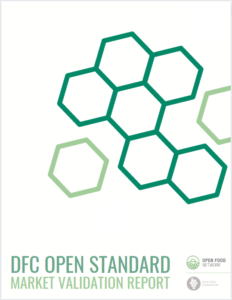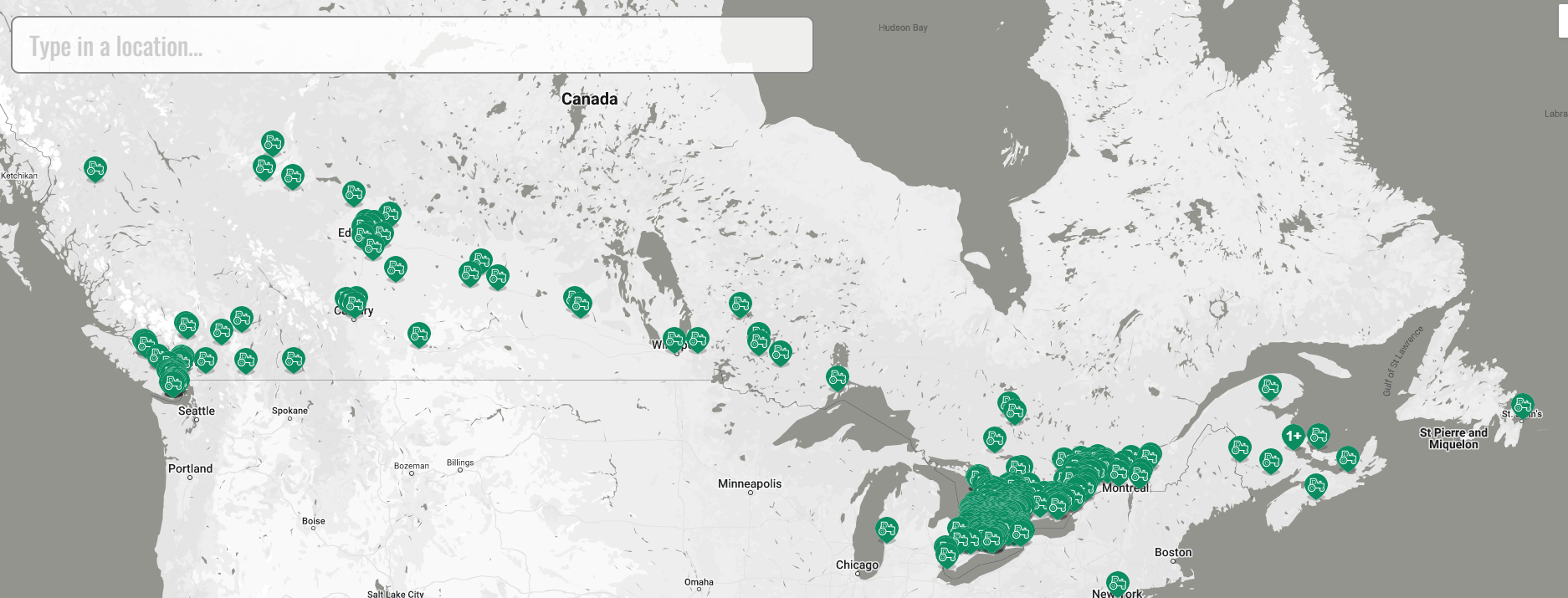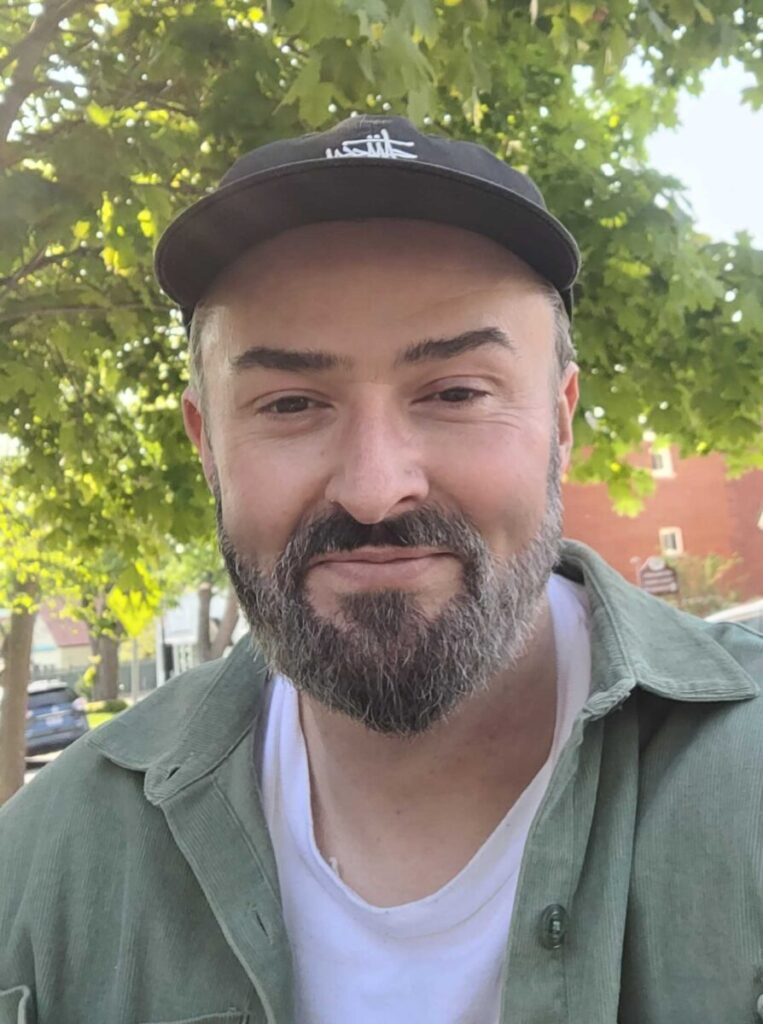Passing the Torch, Part 2: Introducing David as Executive Director
We recently announced the exciting news that David Thomas, our former Operations Manager, has stepped into the role of Executive Director. Our outgoing director, Theresa Schumilas, offered some poignant thoughts on this transition and her hopes for the future. Today we’d like to share David’s words, as he reveals his motivation, goals, and projects on the horizon for OFN Canada.
The first thing David wanted to emphasize was his appreciation for the legacy that Theresa has left. He spoke about the unique responsibility of taking on the role of Executive Director from OFN Canada’s inaugural leader:
“While directors of nonprofits change over quite frequently, what only happens once in the lifetime of an organization is the person who launched that organization passing on leadership to someone else. With that in mind, I want to acknowledge all the incredible work that Theresa has done to build this organization and to establish the partnerships and networks that we’ll be building on, going forward. Everything we do from this point on will be built on the foundation that Theresa laid—and we are really grateful to her for having given Open Food Network Canada such a great start, and such a firm foundation.”
Technology for and with community food organizations
The next phase for OFN Canada will be to build on this foundation in a number of different ways. David’s goals for the organization center around a few key goals: supporting community food groups with new platform features, increasing interoperability in the sector, expanding our national presence, and working with flower farmers. In the coming year, David explains that OFN’s product development will be all about making life easier for our community partners, and especially for food sovereignty and fair food access projects that are not always well served by the existing software options out there.“We have two different key focal points in terms of our product development for the next year: One of them is to develop more features and functionality to support social purpose organizations and community food groups who are running projects that are focused on creating social impact and building fair food access. We are focused on developing features that can offer meaningful support to food sovereignty projects, building tools that make it a little easier for our partners to make local food more accessible in their communities. So we’re focusing on things like support for food subsidy vouchers, tiered ‘social pricing’ functionality, pay-it-forward options at checkout, and even integrations with time-banking tools.”
 An important part of making technology useful for our community partners and for the industry as a whole, is to develop more interoperable systems. What does that mean? David explains that interoperability involves “ensuring that our platform is able to speak with all the other tools people are using in this space—whether ecommerce, logistics, or farm management. We’re trying to cut down on the amount of double entry and data management that producers and community food organizers have to face when using digital tools, as we know this is currently a major pain point for our users.”
To push our interoperability goal, OFN has been running industry outreach to engage other technology providers in ongoing discussion around the development of an open standard to facilitate easy communication between AgTech platforms:
An important part of making technology useful for our community partners and for the industry as a whole, is to develop more interoperable systems. What does that mean? David explains that interoperability involves “ensuring that our platform is able to speak with all the other tools people are using in this space—whether ecommerce, logistics, or farm management. We’re trying to cut down on the amount of double entry and data management that producers and community food organizers have to face when using digital tools, as we know this is currently a major pain point for our users.”
To push our interoperability goal, OFN has been running industry outreach to engage other technology providers in ongoing discussion around the development of an open standard to facilitate easy communication between AgTech platforms:
“We’re attempting to lead collaboration around the development of a more interoperable system throughout the sector, meaning we want to ensure that our ecommerce platform can speak with other kinds of ecommerce platforms. As an example of that, within the next quarter we are on track to launch a tool that will allow for interoperability between OFN and Shopify. We are also really focused on building ‘vertical’ integrations between farm management tools and ecommerce. The goal in this case is to reduce double entry and data management workloads for farms, allowing producers to manage their online sales channels through their farm management tool of choice. We are really excited about a couple of projects that we have in inception with our friends at LiteFarm, and hope to have a couple of big announcements to share with folks soon.”
Broadening our reach
In addition to these technology-based goals, David has a couple of priorities related to community and sector development. The first of these is simple: to expand our reach and partnerships outside of Ontario.
“Although we are a national non-profit with a mandate to support farms and community food initiatives across Canada, there definitely is a regional slant to platform use right now. We have a really large concentration of farms in Southern Ontario, with much less representation in other regions and provinces. One of our goals over the next year is to develop the partnerships and funding that we need to run the same community development initiatives that we currently offer in Ontario with partners in other provinces. Right now we’re working very closely with a number of partners in British Columbia, on the development of a couple of different initiatives. We’re still waiting to hear whether these funding pitches will be successful, but we’re optimistic and very excited about the opportunity to connect with a whole new network of people on the west coast of Canada.”

Finally, David described an area of growth that his predecessor, Theresa, will be working to support.
“Lastly, as Theresa mentioned, we’re making the speciality cut flower farm sector a focus this year as well. Theresa is a flower farmer and has developed relationships in this community, and it’s a bit of a growth time with cut flower farms in Canada. We’ve seen a lot of uptake in the platform in the past four or five months, specifically in projects that are creating wholesale hubs, or hubs that connect designers and florists with farmers and allow them to figure out their supply chains and pricing across multiple different growers in the region. We’re excited to work with these folks and develop programming and resources that support the growth of flower hubs and flower networks on the platform.”
David’s ‘Why’
If these goals sound ambitious, that should be no surprise. Like many people working in this field, David arrived at OFN with a desire to assist in the delivery of community development projects that take the challenge of climate change seriously:
“I’ve had a bit of an unconventional path here. Prior to connecting with Theresa and joining Open Food Network, I was an academic literary critic studying speculative fiction and climate change. My work entailed looking at writers like Kim Stanley Robinson who were imagining realistic near future scenarios. With my students, I was exploring what these novelistic ‘thought experiments’ had to say concerning the development of more effective political and economic responses to climate change. So, by the time I connected with Open Food Network I had done a lot of research around policy in the areas of climate change, ecology, and social innovation, and I was getting to the point where I wanted to be working in this area, but in more of a practical and hands-on way. I wanted to change the focus of my work, so it was less about commentary and analysis, and more about working in small ways to actually begin realizing pathways to better futures. And when I discovered Open Food Network, it really ticked all the boxes for me.”
David’s hopes for the future of OFN reflect the organization’s overall mission: to connect people in authentic ways to build fair, transparent and regenerative food systems.
My hope is for us to continue to grow as an organization and to attract people who share our vision, and are interested in contributing to its growth. To build the partnerships and relationships that we need to develop in order to build a better food system, one that is relationship-driven, one that allows communities more sovereignty over how they procure their food, and more transparency to source. I think a lot of us have the experience at the grocery store where you walk in and discover that one of the only really distinguishing factors between products is ‘does it have an organic stamp or not?’ And otherwise, who knows where this product came from, really? The kind of food systems we want to build at Open Food Network are ones where we are mediating authentic relationships between farms and between eaters. We want to build back into our supply chain a sense of community and of shared responsibility for the wellbeing of the soil that sustains us. Prices that grocery stores are able to offer are artificially reduced via subsidies, so what we’re looking for is ways to get some of those subsidy dollars into supporting regenerative food systems and food sovereign food systems, systems that are founded in our values of community, equity and regeneration. So, our main focus going into this year is to just be really good custodians of the legacy Theresa has left us. One way we can do that is to grow the project and attract more people to it, and connect with more like minded people that share our values so that we can grow this network.”
Check out David’s Reading List
“Kim Stanley Robinson’s a really interesting case, as his novel The Ministry for the Future made an unusually large impact in policymaking circles. It was pitched as a ‘best case climate scenario that you can still believe in,’ and it was so well received that he was offered an all-access diplomatic pass to COP26. There was quite a bit of material in The Ministry for the Future concerning regenerative agriculture and open source, so this started to pique my interest in the field.
Around the same time, I discovered the work of an ecologist called John Todd who released a book that was a real turning point for me. Todd is someone who is super knowledgeable about ecology and about the ways you can develop aquaculture systems that regenerate rather than degrade our environment. I read his work and found it very inspiring, and this was really the critical turning point for me.”

Open Food Network is a free and open source software platform. Our content is licensed with CC BY-SA 3.0 and our code with AGPL 3.
We take good care of your data. See our cookies policy

